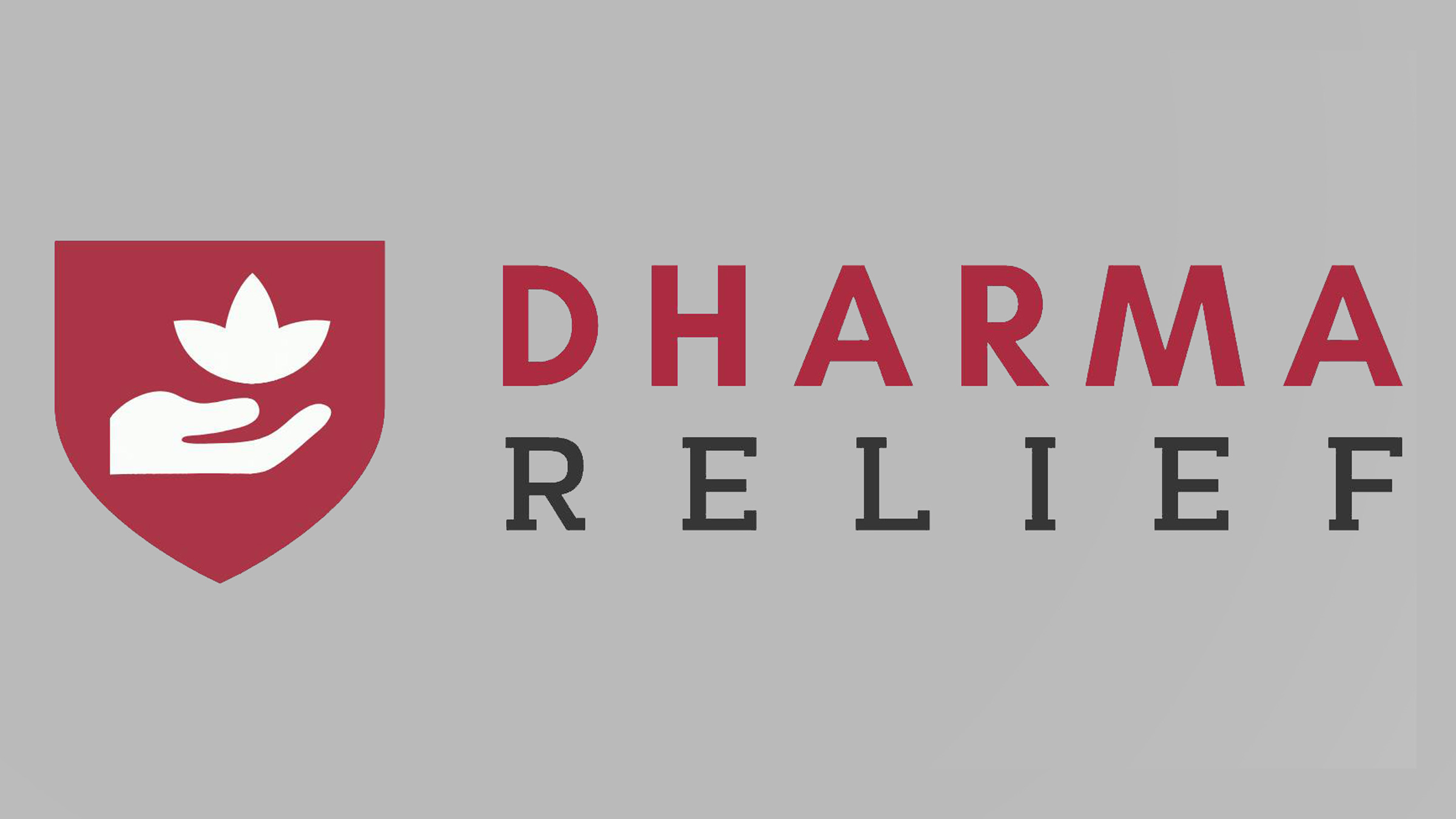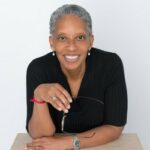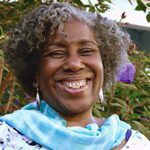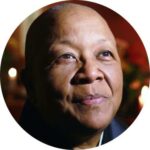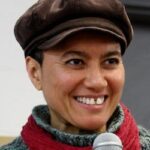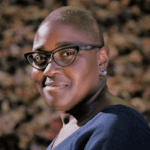Dharma Relief 2 (DR2) is the second project launched by Dharma Relief. The inspiration for DR2 came from the Dharma Relief board that began their work by raising money for medical masks during the COVID-19 pandemic. During the pandemic, George Floyd, an unarmed Black man, was killed by a white police officer who choked him to death with his knee on his neck for over nine minutes in broad daylight on a Minneapolis, Minnesota street. This atrocity inspired the Dharma Relief board to support Black Dharma leadership by recruiting an advisory board consisting of African-descendant Buddhist leaders. The advisory board developed a plan for manifesting the board’s aspiration to support the Black Buddhist community. In this forum conversation facilitated by Pamela Ayo Yetunde, Myokei Caine-Barrett, Marisela Gomez, Stacy McClendon, DaRa Williams discuss how they manifested the board’s aspiration into material support. Read our interview with the fellows in the May 2024 issue of Lion’s Roar.
Pamela Ayo Yetunde: Why did this project appeal to you?
Stacy McClendon: The opportunity to create a resource or support for Dharma teachers of African descent was the motivation for my involvement and that is why I became involved — to be able to create something with a group that represented decades and decades of practice and teaching and wisdom. It felt like it couldn’t go wrong, and it was a surefire success.
Pamela Ayo Yetunde: The project had no form other than a mission, which was to support African-descended Dharma practitioners, is that right? If so, how did you all go about deciding what the project would look like?
DaRa Williams: It got incubated in the larger community of people and it became really clear that it was the members of this board who are of African descent who needed to be responsible for all the decisions and choices around what the manifestation of the vision would look like.
Myokei Caine-Barrett: It was Marisela who came up with the Guaranteed Income idea. We were just talking about raising money but we hadn’t really thought about how we were going to spend it. Marisela gave us a focus and a way to look at the Guaranteed Income concept that made a great deal of sense.
Pamela Ayo Yetunde: Marisela, what led you to offer this idea of Guaranteed Income?
Marisela Gomez: The Basic Income Guarantee movement has been growing over the last years, historically in the political arena, but if you think about it, guaranteeing black Dharma teachers a monthly amount of money that can sustain them a little bit to take care of themselves and offer practice to others is the Dharma of loving action, compassionate action, the ability for us to heal ourselves. And so, it just came together that this how we want to take care of our Dharma teachers and offer them support.
Pamela Ayo Yetunde: I’m thinking about the fact that in this is a small group, there are two people who are in the Insight tradition, one person in the Plum Village tradition, another person in the Nichiren Shu tradition, and I’m wondering if there ever was a time where you all did not agree on what the Dharma is as it relates to this project?
Marisela Gomez: Not really. There was a lot of willingness, openness and sisterhood. Sisterhood held the container of what we were doing.
Pamela Ayo Yetunde: That’s interesting. What is sisterhood?
DaRa Williams: There is a love-heart connection. Not that it isn’t offered to others as well, but it’s something like “I see you. I know you. I hear you. I understand you.” That’s what it was like for me and rather than it being conflictual, we actually complemented each other.
Myokei Caine-Barrett: I think just being a female in leadership, especially an African-descended female, there’s always the notion that you might not know as much as you think you do. It was such a pleasure to come into our space, where we all just understood and recognized our shared experiences in leadership. This has been the easiest entry into working with a group of folks that I’ve ever experienced.
Stacy McClendon: We created a space where everyone’s ideas were heard, and there was so much laughter! Once we heard the idea of guaranteed income, the conversation turned to the question, “What would support black Dharma teachers with this income?” which led to us narrowing down to the goal of supporting them in their daily lives. We wondered if it could be that simple, so we surveyed black Dharma teachers, and they responded by giving us good information about what would support their basic well-being.
Pamela Ayo Yetunde: I’m hearing a lot about the recognition of shared experiences. I’m hearing about the laughter. I’m hearing about checking yourself. You had an idea, but before just going out and doing it, you went into the community of black Buddhist leaders to determine whether your idea had some validity, you brought back that data, and then, in essence, crafted a plan. I think that’s beautiful. I also know that every group is not harmonious all of the time and that many people are trying to figure out how they can best support a particular group. Can some of you say something about determination and perseverance in reaching your goals?
DaRa Williams: The one thing that I would add is that I had a high level of trust and respect for each of you are as a person, just as a person, but also in terms of what you hold and how you move in the world, and that was always the background and backdrop to our interactions. I never doubted that what came forth from any one of us did not have value and credence and should be paid attention to whether we decided to incorporate it or not.
Pamela Ayo Yetunde: After receiving data from your survey, you still had to do the work of putting together criterion for determining who would be eligible for this support from Dharma Relief. How did you make decisions about the qualities of the people who would be potential beneficiaries of the support?
Marisela Gomez: Some of our members recommended criteria which led to many follow up questions, and we discussed it all. Also, Stacy was nominated to hold the center of our work together, and her agreeing to do so supported our group dynamic and our longevity. We took our time with this process.
Stacy McClendon: The selection of our criteria was framed around the end goal, guaranteed income. There had also been two graduating classes of Dharma teachers from four-year teacher training programs — Spirit Rock Meditation Center and Insight Meditation Society. We were also aware that there was heavy teacher representation on the West and East coasts, so we were really interested and intentional about having some representation from across the whole of the United States. We also discussed the fact that the fellowship was not exclusively for certified or ordained Dharma teachers — that there are lots of folks out there who have been deeply leading Dharma efforts that don’t have that formal title of leader. So geographically, chronological age, practice, and leadership experience were priorities for us.
DaRa Williams: We found that due to the differences in the systems and structures of the lineages, we had more Theravada and vipassana applicants than others while also wanting to create a diverse cohort, so that was an interesting thing to learn.
Pamela Ayo Yetunde: Thank you. In closing in closing, now that the that you’ve selected your fellows that you have practice generosity, determination, perseverance, generosity, did I say patience already? What’s next? How do you support them along the way? And what do you envision for the future?
DaRa Williams: We are actually meeting with them three times throughout the year. We’ve had the first meeting and before we have a full sense of where we’re going, it feels a little bit premature to say where we are headed.
Myokei Caine-Barrett: I think it’s our baby, so to speak, and we’re going to be in it for a little bit.
Pamela Ayo Yetunde: Our baby?
Myokei Caine-Barrett: That was It’s something we built together. And I think we all want to see the results, and how these people are changed — the impact. There’s a lot of talent working on this, and I think we’re all eager to see how it works, and then if it works, we can get more money to fund more people. It’s a pilot program.
Pamela Ayo Yetunde: As we bring our conversation to a close, I’m wondering about the process of reviewing the applications, and if each one of you would say something about what surprised you.
Marisela Gomez: What surprised me was the consistent reporting of gratitude for this program and that they really looked looked forward to being in community with the other fellows and with us. That was beautiful. They made it something that became a part of the program.
Myokei Caine-Barrett: I was really surprised that there was no competitiveness. The process was joyful and full of surprises and excitement. To be loved, and supported, and resourced. I’m just grateful to have been a witness.
Stacy McClendon: I was surprised at the number of folks who are teaching, leading, and offering the Dharma in a variety of ways —nearly in isolation — by sheer fortitude and dedication to the practice, they just keep going, but feeling their way in the dark.
Pamela Ayo Yetunde: Well, I will say on behalf of all of us in this work that I wish there had been a Dharma Relief Two when I started in my dharma leadership experience, because I can only imagine how validating and energizing this kind of support would have been for me, so thank you all for your work, and for sharing your experiences with Lion’s Roar. I hope people will keep following your work to see what’s next and learn how they can support your ongoing work. Thank you.
